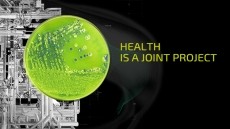Quality, safety issues block Novartis' antifungal approval
failure to gain approval for their anti-fungal treatment Mycograb
in the European Union.
The Committee for Medicinal Products for Human Use (CHMP) recommended that the company be refused marketing authorization for Mycograb (efungumab) following concerns over the quality and safety of the medicine.
Mycograb is intended for use in combination with amphotericin B for treatment of serious systemic fungal infections, primarily cases of invasive candidiasis in adults. However, despite its superior efficacy when compared to treatment with amphotericin B alone (the most common treatment option for such infections), the CHMP was reluctant to approve the drug.
While Novartis state that they are confident of gaining approval for Mycograb, the CHMP raised concerns regarding the folding and aggregating of Mycograb, and the possibility of immune responses in some patients.
In addition to this, potential cases of cytokine release syndrome (a potentially life-threatening condition characterised by fever, chills and hypotension) were cited as another concern for the use of Mycograb, although the cause of this was unknown. Amphotericin B has however also been implicated in inflammatory cytokine response.
The drug is currently manufactured externally by a third party, however a spokesperson for Novartis commented that the intention is to eventually manufacture the drug in-house, which could address some of the concerns highlighted by the CHMP. Novartis are currently working with the third party manufacturer to provide clarification and data to the CHMP to support their application for approval of Mycograb.
The CHMP also criticised the size of the clinical trial of the drug, which at 139 patients was considered too small for the safety of the treatment to be sufficiently assessed. However, a spokesperson from Novartis said that there are currently no plans for further clinical trials.
The most common treatment for invasive candidiasis, Mycograb's main target market, is currently amphotericin B, which offers the broadest spectrum therapy. However, with a degree of toxicity proving inevitable with this treatment, and other drugs such fluconazole proving ineffective against certain strains, Mycograb would seem to offer a potentially more favourable treatment option should it gain approval.
According to CHMP guidelines, Novartis have 15 days from the date of the decision to lodge their appeal, and then a further 60 days within which to provide the additional information in support of their application for approval of Mycograb. At present the additional information is solely in the form of clarification, analysis and some additional data on the processes involved, and the company would then anticipate an answer from the Commission by mid-March 2007.
Mycograb was one of two promising biotech compounds Novartis added to their catalogue through their acquisition of NeuTec Pharma in June 2006. Having already been awarded Orphan Drug status in Europe and the US, the hope was that Mycograb would strengthen the company's position in the anti-fungal market, aiming specifically at the systemic mycoses sector. This market area alone had sales in the top seven countries of $1.7bn (€1.3bn) in 2005, a figure which is expected to rise due to increasing numbers of immunocompromised patients who represent potential recipients of the drug.
Initial plans were to submit Mycograb for FDA approval in 2009, the timing of which Novartis does not expect to be affected by the current setback. Aurograb, another promising drug gained through the NeuTec acquisition and used for the treatment of strains of methilicillin resistant Staphylococcus Aureus (MRSA), is currently on track and in Phase II trials with 160 patients with deep-seated staphylococcal infections. Data from these trials is expected by the beginning of next year, with the drug due for submission in the US and EU in 2010.



















